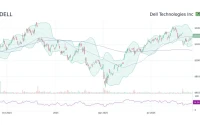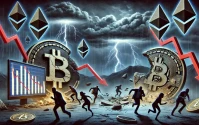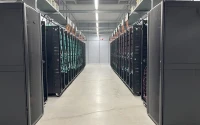Here we go.
*
Delta's Disconnect: Why Canceling a Flight is Less Important Than Canceling a Human
On the surface, it’s just another sterile press release, another casualty of cold, hard numbers. You won’t be able to catch a Delta flight from this U.S. airport anymore. The reason? The usual corporate jargon: a “network adjustment” to match demand. The planes just weren’t full enough, with load factors dipping below 60%. It’s the kind of decision that gets made on a spreadsheet, an algorithm quietly optimizing a global network for maximum efficiency. And in a vacuum, it makes perfect sense.
But this isn’t happening in a vacuum. You and I, we live in a world of people, not just data points. And while Delta was busy erasing a line on its route map, it was also erasing a human being from its payroll.
This is the story of Mathew Palmer, a flight attendant with nearly two decades of service, fired for a social media post. And when you place these two events side-by-side—the canceled flight and the canceled career—you start to see a much bigger, more troubling picture. You see a story not about airline logistics, but about the fraying connection between the massive, abstract corporations we build and the actual, breathing humans who give them life. The canceled flight to Midland is a footnote. The real story is about a profound and dangerous disconnect.
The Digital Uniform You Can Never Take Off
Let’s be honest. We’ve all built these digital lives that run in parallel to our physical ones. We share, we comment, we react. It’s messy and immediate and deeply human. But for a growing number of us, there’s a new, invisible clause in our employment contract. It’s the idea, as Delta CEO Ed Bastian put it in a company-wide memo, that “We represent Delta, at all times, in any forum.” When I first read that line, I honestly just sat back in my chair, a little stunned. At all times? In any forum?
Think about what that really means. It’s like being handed a digital uniform you can never, ever take off. Whether you’re at a family barbecue, in a private group chat, or scrolling through your feed at midnight, you are, first and foremost, an ambassador for the brand. Your human identity becomes secondary to your corporate one. This is the kind of paradigm shift that happens so quietly we barely notice it until someone gets hurt—it’s a slow-motion fusion of person and product that I’m not sure we’re prepared for.
Delta flight attendant fired for Kirk-related social post speaks out. According to the Association of Flight Attendants, dozens more were suspended for similar posts. Now, we can debate the content of the posts all day long, but that’s a distraction from the fundamental question: In a hyper-connected world, where is the line between personal expression and professional liability? Is a company’s brand so fragile that it cannot withstand the complex, sometimes controversial, thoughts of its own people? Or have we built corporate structures so rigid that they can only process perfect, sanitized inputs, and simply delete anything—or anyone—that deviates?

This isn't a new problem, but social media has accelerated it to a terrifying speed. It reminds me of the early days of the industrial revolution, when factory owners had to grapple with the new reality of a workforce concentrated in one place. It took decades of struggle to develop rules, rights, and protections for the physical body at work. What we're seeing now is the very beginning of that same struggle, but for our digital minds. What rights do we have to our own thoughts when our digital lives are perpetually tethered to our livelihoods?
An Operating System Without a Failsafe
The true tragedy of Mathew Palmer’s situation isn’t just about a single social media post. It’s about the system—or lack thereof—that processed his fate. It’s a tale of two Deltas, a stark contrast in corporate architecture that reveals everything about where the power lies.
On one hand, you have the pilots. They are represented by the Air Line Pilots Association (ALPA), a union. Their contract is, essentially, a carefully coded operating system for their employment. It contains protocols for everything, including a formal grievance-arbitration process for disciplinary actions. If a pilot is accused of something, there is a clear, predictable, and negotiated path to resolution. It’s a system with a failsafe.
On the other hand, you have the flight attendants. They are not unionized. Instead of a contract, they have something called an “Open Door Policy,” a way to appeal decisions to a panel of peers and managers. It sounds nice, but in practice, it’s like a button that may or may not be connected to anything. For Palmer, a man who ironically was once a key voice in an anti-union campaign, the door was firmly shut. He was told his case didn’t even qualify for an appeal.
This is the critical disconnect. A modern, complex organization like an airline is a technological marvel of systems and redundancies. Every flight has backup systems for its backup systems. Yet, when it comes to its own people, the human element, the system for non-union employees is shockingly brittle. It’s like running a multi-billion dollar enterprise on software with no error-handling. When an unexpected input occurs—like a messy, human social media post—the system doesn’t have a protocol to manage it. It just crashes and deletes the file.
Georgia, where Delta is based, is an “at-will” employment state, which basically means an employer can fire someone for almost any reason. This is an archaic piece of legal code from a different century, completely unequipped to handle the nuances of 21st-century digital life. It’s a legal framework that sees a human being as just another line item, as easily deleted as a flight from Midland to Austin.
The Human Algorithm
So where do we go from here? We’re living in an age of algorithmic optimization. Delta is a master of it. They have algorithms to price tickets, to schedule crews, to chart the most fuel-efficient flight paths across the globe. The decision to cut the Midland route was the logical output of one such algorithm. The numbers went in, and a decision came out. It was clean, efficient, and utterly devoid of humanity.
And that’s the problem. They’re trying to apply the same cold, binary logic to their people. They’re trying to solve for the “human algorithm,” and they’re failing spectacularly. They see a social media post that doesn’t compute with the brand values, and the output is simple: terminate.
This is the great challenge for every organization in the next decade. The next revolutionary breakthrough won’t be a faster jet or a smarter AI. It will be the development of corporate systems built on empathy. It will be the creation of cultures that embrace human complexity instead of punishing it. The most successful, most resilient, and most beloved companies of the future will be the ones who figure out that you can’t optimize a human soul on a spreadsheet. They’ll be the ones that learn to connect with their people, not just cancel them when they become inconvenient.









